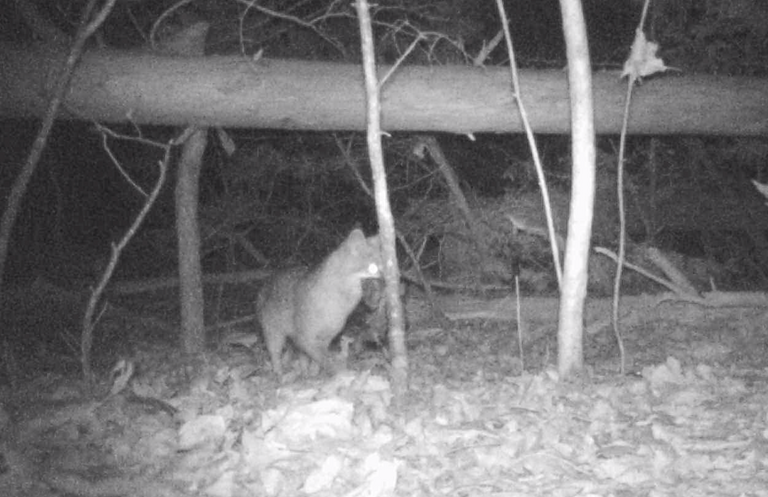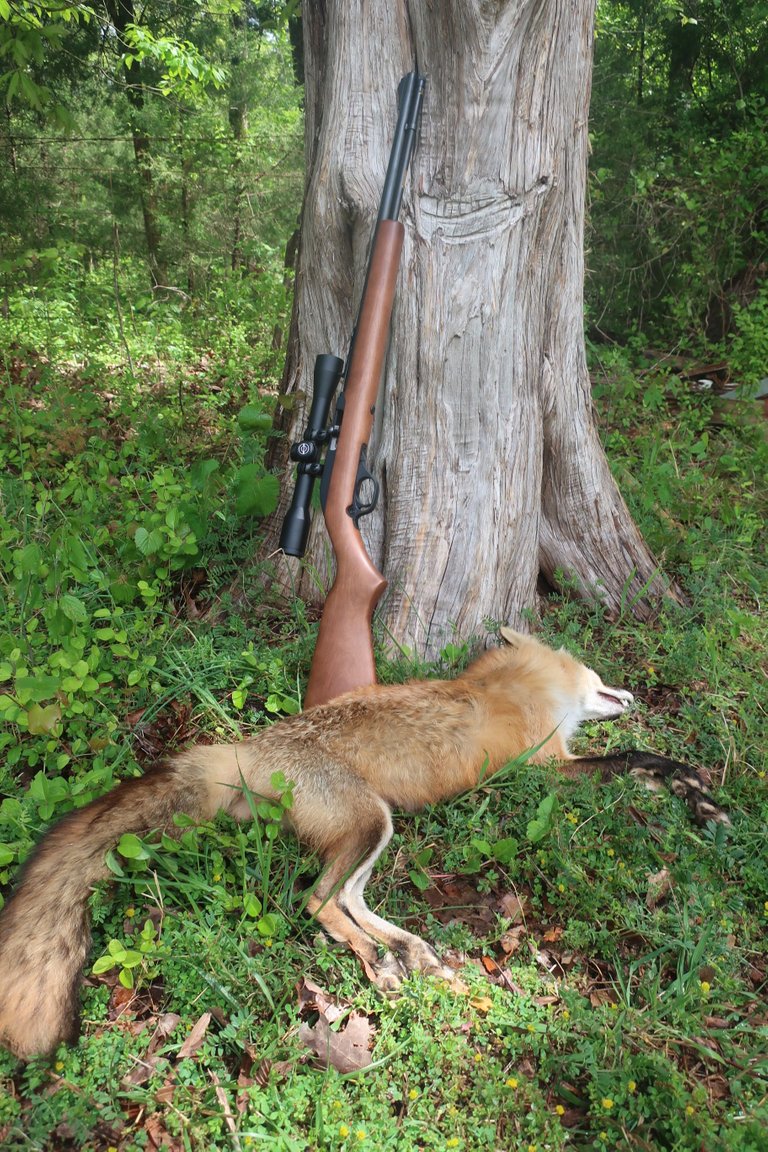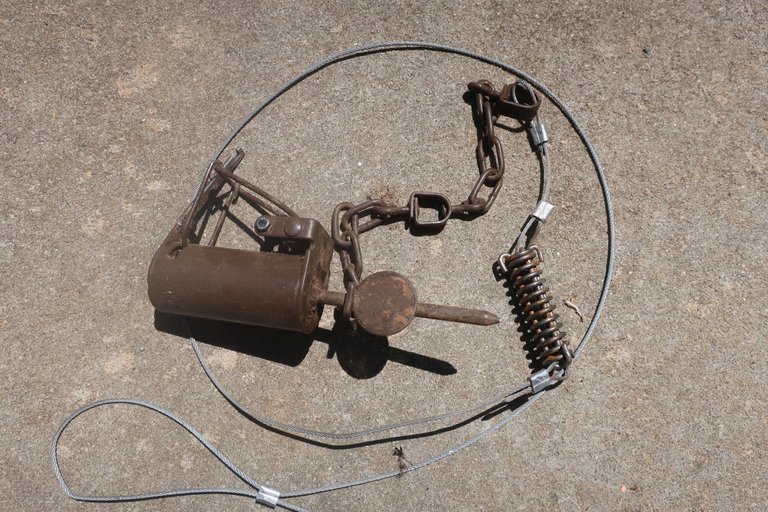After losing almost our entire first flock to predators, we have been a lot more cautious since we are really depending on these chickens for food security. However, since we went into isolation, we have been free-ranging them since we are home and almost always outside. This has cut down on feed input significantly, but we suffered a loss last night.
Witching hour drama
The hour before dinner until bedtime for the kids is a pretty difficult time. I didn't have time to round up all the hens before supper so I left them right outside our kitchen window while we ate. As we were cleaning up, I heard a chicken squawk which didn't really catch my attention but I simultaneously saw a murder of crows fly from an oak tree. I went to the window, and one of my Barred Rock's was in the mouth of a familiar animal. It was a red fox that I occasionally catch on camera skulking around my woods.

our neighborhood red fox with a squirrel in its mouth
The benefits of preparation
I knew this fox patrolled our area so I had planned for this moment. I immediately grabbed my rifle and went outside the kitchen. The fox was crouched on the hen in the woods about 30 yards away. It saw me. I shouldered the rifle. It ran, and I took one shot before it got behind a large oak tree and away from my property.

red fox with my favorite gun, the Marlin 60
I will never forget that moment. The fox with the hen its mouth running with its prize. My hands shaking, no time to do anything but aim and fire. My kids watching in the window, excited and screaming.
Oddly enough, we haven't found the hen yet. The fox dropped the hen when it was shot but by the time I got over there we couldn't find it. We combed the woods, looking in thick brush and up in branches but have not seen or heard the hen. 24 hours later, I am assuming the hen is dead but it is very odd. Foxes typically hunt alone, but it is possible that another fox like its mate could have been with it. I doubt a coyote would be trailing a fox to prey on its kill.
Managing depredation
If you keep backyard chickens, you will suffer depredation if you let them out of the coop, even in a run, and sometimes the coop won't stop a predator. We tell our kids the chickens aren't pets, and this is a fact of raising livestock. But you want to protect your flock both out of affection and guarding your ROI.
Steps to protect your chicken flock
- Learn the laws. I knew that in my state I could shoot (but not trap) a fox if it was in the act of damaging property. I didn't have time to look this up.
- Prevention is key. We keep our hen house very close to our house with a floodlight fixed on it. This has fixed about 90% of our problems. Build a very sturdy coop. Ours had a padlocked pop door, but the main access is a hinged roof that takes about 50 lbs to lift up.
- Limited, but real, benefits of wildlife management. We aggressively trap our land during trapping season and harvest furbearers for use on the homestead. Many animals like raccoons and coyotes will travel long distances and opportunistically fill a habitat, we have noticed a sharp decrease in predators seen on game cameras since we started doing this.

Dogproof trap for catching raccoons, possums, and skunks
COVID-19 Diary on the homestead
Day 1:on the homestead
Day 2: food security
Day 3: potatoes and resilience
Day 4: sweet potato slips
Day 6: opportunity and risk
Day 7: sustainable food
Day 9: profitable food production
Day 15: small engine repair and goodbyes
Day 21: bullheads and fish oil
Day 33: new brooder, furlough, providence
oh my lord you killed a fox you did not want it to get into the chicken i guess you wanted it that way
Red foxes are pretty smart animals, and there is a pretty large risk you are going to get predation attempts every night once you have a kill.
We found here when hunters wiped out the coyote and fox populations, the rodent populations went right through the roof. We had severe rodent problems for years, until the predators regained a foothold. For this reason alone, we don't kill predators but build to deter. In 12 years of keeping up to 90 birds a year, we've only lost 5 to predators.
I don't doubt it. Coyotes and foxes have a really interesting relationship. They can co-exist except a coyote will go out of its way to kill a fox. When you add the longer travel distances of coyotes, a lot of studies show that very aggressive wildlife management programs result in only seasonal declines of coyote populations. The following year you can end up with MORE coyotes due to an abundance of prey species, as you note, and increased coyote litter sizes due to a lack of coyotes in the territory. And red foxes can have a hard time getting a foothold when the landscape is saturated with coyotes--this is why you see more foxes in suburban/urban areas.